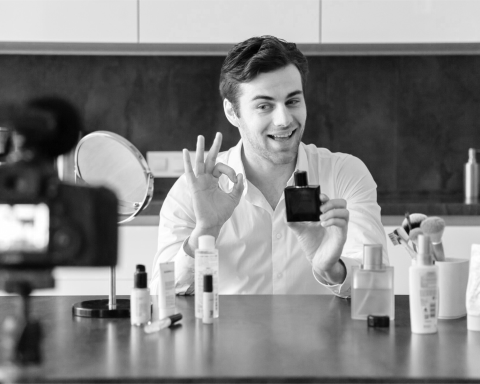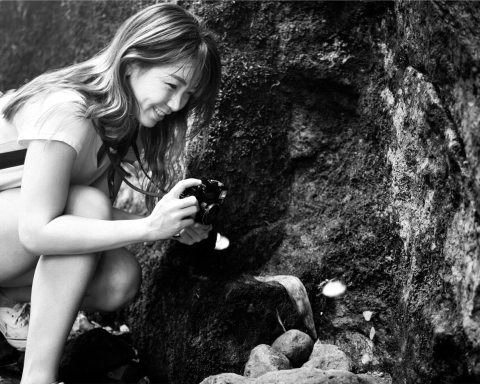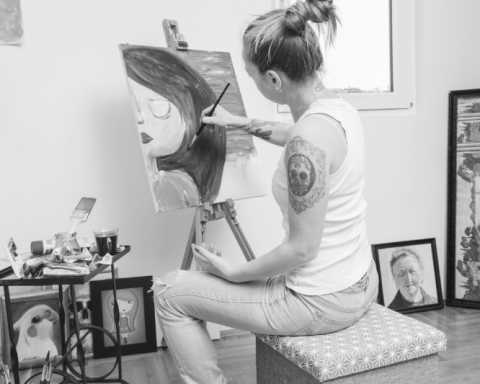Have you ever been asked about your hobbies and struggled to name one? Well, you’re not alone. In this society, having hobbies is a kind of new luxury. The demands of work, the distractions of technology, and the pressure to be constantly productive squeeze your daily lives, leaving you with no leisure time to enjoy.
As the decline of hobbies worsens, they seem to become less important. The truth is that not having hobbies is a great disadvantage. When you start losing interest in hobbies, you no longer have a place to escape from your suffocating daily routine. As a result, you can become more stressed and unfulfilled with your life.
Thus, this article will answer the question, “why do we lose interest in our hobbies?” It will also examine the impact of this loss on mental well-being and offer actionable practices for rediscovering leisure activities.
Learn how to reignite your hobbies and create a more fulfilling and balanced life.
Why people are losing interest in hobbies
Hobbies are more than just enjoyable activities; they have a lot of functions in your daily life.
They serve as a medium of self-expression and give people identity. They also provide many benefits, from improving physical health and strengthening social relationships to enhancing psychological well-being.
Read more: The Benefits of Hobbies and Interests Outside of Work.
Despite this, people seem to be less engaged in hobbies than they used to. Why is this happening? Check out what experts say.
Overload from work and daily responsibilities
Perhaps the biggest reason is because people don’t have time for it. A study involving more than 2,500 people in the US confirmed this in which participants reported that “no longer having time” is the major reason they give up on hobbies.
People work at least 8 hours daily, sometimes working overtime. Many are even forced to take multiple jobs to survive economic hardship.
As soon as they come home, they still have many responsibilities awaiting them, leaving no room for leisure time. What time is left apart from work and other responsibilities is often reserved for sleep. At best, most people sit around and do nothing due to exhaustion from their daily activities.
Given this, the decline of hobbies seems very obvious.
The pressure to be constantly productive
Even if a few people have spare time for hobbies, they won’t often engage in them. Why? The culprit is the overhype of productivity culture.
Sure, being productive is good, especially for your long-term career. However, the unhealthy culture of productivity convinces you that hobbies are unimportant activities that waste your time.
A study interviewing layoff workers demonstrated that people often feel stressed due to the pressure to be productive during their free time. They feel useless for not making things out of their day.
From their perspective, being productive only relates to work, providing tangible benefits that support their long-term career, or making something economically rewarding. Thus, working on emotional stability and personal fulfillment through hobbies is not considered productive.
Read more: A Good Life Outside of Work is an Overlooked Productivity Secret
Nevertheless, many have tried to balance this tension by engaging in so-called “productive hobbies.” Indeed, hobbies can be the start of a new career or a source of side income. But, you must be careful, as the moment your hobbies become an obligation, you are squeezing the joy out of leisure.
Remember, when the hobby is no longer fun, it’s no longer a hobby.
The allure of technology and instant gratification
In this digital age, scrolling through social media has become a common pastime. While social media offers immense benefits, such as staying connected and informed, it also has drawbacks.
Social media platforms are intentionally designed to encourage prolonged usage. Features such as likes, comments, and shares act as instant rewards, reinforcing the behavior and prompting users to repeat it.
Additionally, endless content streams trigger the brain’s reward system by releasing dopamine — a neurotransmitter associated with pleasure and motivation — making users crave the next scroll. Over time, this cycle can contribute to compulsive usage. People are losing interest in everything that is not on a screen.
A study has shown that increasing social media usage leads to declining engagement in hobbies. People no longer seek enjoyment from hobbies; instead, they indulge themselves in endless scrolling on social media, craving the immediate gratification it offers.
Mental health challenges and burnout
Mental health conditions such as depression, anxiety, or burnout can become a roadblock to engaging in hobbies. When emotional exhaustion hits, people tend to have difficulties processing the enjoyment of leisure. They don’t have enough energy to initiate or participate in any activities. They lose interest in everything.
A study published in Leisure Sciences confirms this. This study showed that compared to undepressed counterparts, depressed people have lower participation, motivation, perceived enjoyment, and sociability to engage in hobbies.
How to reignite interest in hobbies
Now, you’ve learned why people lose interest in hobbies. The reasons are indeed complex, and maybe one of those is why you’ve lost your hobbies. But don’t worry. Here, you’ll learn how to reclaim hobbies for a more fulfilling life.
Read more about practical steps to find your hobbies based on scientific findings here.
Reflect on what you truly enjoy
Spend time to revisit things that truly intrigue you.
You can start by writing down activities that you used to enjoy. Maybe you enjoyed painting or cooking or whatever. Reflect on why these activities used to bring you happiness. Is it because of the activity itself or the people around you? Do you still find these activities meaningful?
Then, consider whether these hobbies align with your current condition. Do you have the time and resources to resume them, or would it be better to start a new one?
If you let go of your old hobbies because of resource limits, be it time or money, try new ones that align with your current situation.
Start small, set realistic goals
When you want to try out a new hobby or start again for a long time, you can’t become an expert instantly. So, set aside those unrealistic goals and start with a baby step that works. Here is a guide to help you:
- Choose a hobby. You can’t start anything if you don’t choose one. It doesn’t have to be fancy, just make sure it aligns with your values.
- Set up time to start. Commit to yourself when you want to start on your new hobby. The sooner you start, the better you get.
- Start at a beginner level. Be aware of your capabilities. Set realistic goals for newbies like you. Similarly, don’t burden yourself with expensive equipment to start. What matters is the meaning of your experience.
- Make time for your hobby. To ensure continuity, schedule regular time for your hobby.
- Appreciate the progress. It’s okay if you feel stuck sometimes. Learning something new always takes time. Celebrate any small wins and embrace the challenges.
Prioritize leisure by minimizing distractions
To live a more engaged life, you should start setting boundaries with your phone. For example, you can set the notifications to silent to avoid distractions, often keeping you away from your hobbies.
Or, if you’re up for something more drastic, consider uninstalling social media apps like Facebook, Instagram, TikTok, and Twitter.
Check out your app manager to see which apps take up most of your time — you’re probably wasting a lot of time there! You can also look for platforms that offer similar features or content to keep you connected without overload.
By eliminating these, you have less distraction and can commit better to your scheduled hobbies.
Experiment with new activities
Sometimes, you can get bored or feel like you don’t want to continue with the new hobby. Or, you just want to try things you’ve always wanted to do.
That’s fine. As you’re still looking for the perfect hobby, you can always start a new hobby that truly resonates with you. Exploring these new activities can help you discover the true you.
However, the question is how to experiment with new activities without giving up too easily on what you already have. Of course, you don’t want to end up having no hobbies at all because you can’t make up your mind, right?
To avoid this disaster, try to gamify your hobby — transforming a mundane activity into a fun and enjoyable game. This enables you to experiment with your chosen hobby before you start a new one. Here’s how to do it:
- Set an end goal. Let’s say you pick drawing as your new hobby. Your end goal is to be able to create a manga or cartoon character within a year.
- Build levels. Divide the end goal into smaller steps with increasing difficulty in each level. You can also include the length of time needed to complete and rewards.
- Do some side quests. Are you familiar with the term side quests? These are other goals that the characters in the game can explore outside their primary goal. Commonly, side quests are still related to the main goal. For instance, if you’re now into conventional drawing, you can learn how to draw digitally. This step allows you to give variety in your hobby and act as a bridge to your other potential hobbies.
- Try out new things. If the three steps above do not help you, you can start a new hobby. It can be related to your previous hobby or a completely different one.
Join communities or classes
One simple trick to boosting your hobby journey is participating in a club.
For instance, if you love sports, find an active local sports club. By joining such community clubs, you can make new friends, get coaching, and get materials to level up your skills.
Moreover, this club can also be the start of your expert career. Some clubs often have internal competition or even have a link to external ones. This is a good start if you aim to be a professional.
Even if you’re not interested in winning a competition, attending events held by your clubs can significantly improve your well-being by boosting personal fulfillment.
In conclusion
In an era of hustle and bustle, having time for hobbies seems like a privilege.
You’ve been living in a tight schedule, pressured by productivity norms, and constantly distracted by notifications. Your well-being has deteriorated from this madness; you may have lost interest in life. Ironically, these make it harder for you to start a hobby.
Nevertheless, meaningful leisure activities are still possible. Rediscover your hobbies by carefully reflecting on what inspires you, exploring new activities, and taking small steps to realize them.
Start taking real action to reclaim your hobbies for a more balanced and fulfilling life now.
If you would like to see more resources on hobbies, check out the Happiness Science Labs. The lab uses the research of the Institute for Life Management Science to produce courses, certifications, podcasts, videos, and tools. Visit the Happiness Science Labs today.
Photo by benzoix on Freepik






